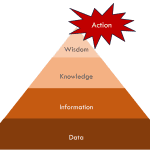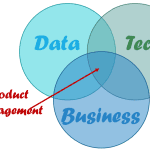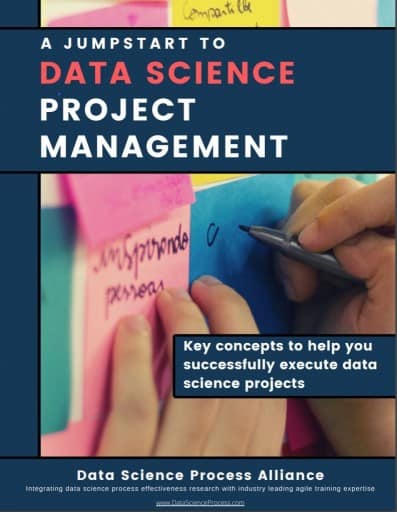As AI seamlessly integrates into more products, a new breed of product owner is emerging – the AI product owner. These new in-demand professionals are like their broader product counterparts but with several interesting nuances that position them to drive the AI field forward.
To better understand this exciting, dynamic, and growing role, we’ll explore:
- What is an AI product owner?
- How to become an AI product owner
- Is the AI product owner role right for you?
What is an AI product owner?
The product management field
The broader field of product management intersects user experience, business, and technology. Like more generalized product management professionals, AI product owners also sit at this intersection. They align business objectives with the capabilities of technology to deliver an experience for their stakeholders.
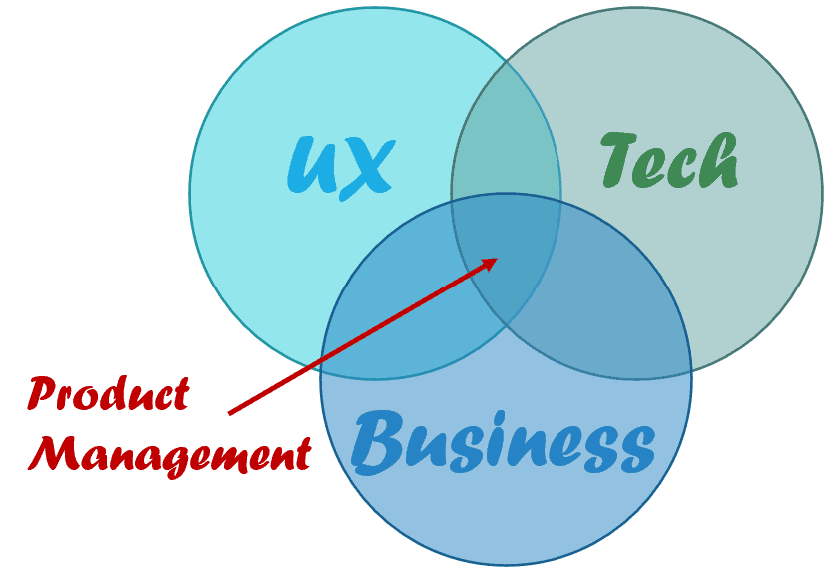
What makes an AI product owner different?
The AI product owner role is a specific subset of this broader product management field in two aspects.
First, unlike their traditional product professional counterparts, AI product professionals navigate nuanced and complex ecosystems centered around data and artificial intelligence. Given the strong data focus, the AI product management Venn diagram is often represented at the intersection of business, tech, and data (as opposed to UX).
Second, the product owner is a specific role for Scrum and Data Driven Scrum teams. Product owners (PO’s) are accountable for various artifacts, interactions, and processes for their Scrum team and broader organization.
AI product owner role and responsibilities
At their core, a product owner is accountable for maximizing the value of their product. Although the role looks similar across companies, each product owner will have different responsibilities based on their team, product, and industry. However, generally, each AI product owner will be responsible to:
- Define the AI product vision: Collaborate with stakeholders to understand business goals and translate them into a clear vision for AI product development. Develop and communicate a strategic roadmap for AI initiatives.
- Manage the backlog: Maintain a prioritized backlog of AI features and user stories, ensuring alignment with business priorities. Regularly update and refine the backlog based on feedback and changing business requirements.
- Facilitate cross-collaboration: Serve as a liaison between business stakeholders, data scientists, and development teams. Foster effective communication and collaboration to ensure a shared understanding of product goals.
- Guide sprint plan and execution: Participate in sprint planning sessions to refine and prioritize AI-related tasks. Monitor and guide development teams to ensure the successful delivery of AI features within each sprint.
- Participate in sprint review and retrospective: Engage in sprint reviews to demonstrate AI functionalities to stakeholders. Use retrospectives to gather insights for continuous improvement in their development processes.
- Manage stakeholders: Engage with stakeholders regularly to gather feedback and insights. Demonstrate the value of AI solutions through effective communication and presentations.
- Manage risks: Identify and mitigate potential risks associated with AI products. Stay informed about ethical considerations, compliance requirements, and industry best practices in AI development.
- Manage quality: Collaborate with quality assurance, engineering, and data science teams to define testing criteria for AI features. Ensure the quality and reliability of AI solutions through sufficient testing and validation.
- Monitor product performance: Implement monitoring mechanisms to track the performance and impact of AI solutions. Iterate solutions based on performance metrics and user feedback (see Data Science Project Metrics for ideas).
How to become an AI product owner
Enhance your knowledge and skills
Like any product professional, the path to becoming an AI product owner begins with a solid foundation in product management principles. This entails experience in Agile approaches for AI, user research, and product development. While all product professionals should have basic data and AI skills, AI product owners need to be data and AI gurus.
Collectively, you should focus on gaining skills in the following domains:
- Data literacy: Develop a strong understanding of data concepts, data analysis tools, and the ability to interpret data insights.
- AI knowledge: Familiarize yourself with fundamental AI concepts, machine learning algorithms, and the potential applications of AI in your industry.
- Technical acumen: Gain basic proficiency in programming languages (like Python and SQL), AI development tools (like auto ML tools and specific ML programming libraries), and cloud-based infrastructure to communicate effectively with technical teams.
- Collaboration skills: Hone your ability to build bridges between diverse teams ranging from data engineers, data scientists, prompt engineers, and software developers to marketing, design, and product teams.
- Ethical leadership: Champion responsible AI development practices and advocate for user-centric approaches in AI product design.
- Business acumen: Familiarize yourself with the business domain you aim to work in and understand how AI can address specific business challenges and create value.
- Agile and Scrum expertise: Gain experience working within the Scrum framework and broader Agile principles. Study the frameworks as defined in the Scrum Guide and the Data Driven Scrum Guide.
- Leadership and team collaboration: Develop leadership skills to guide cross-functional teams and drive collaboration toward common goals. Read How to Lead Data Science Teams to point you in the right direction.
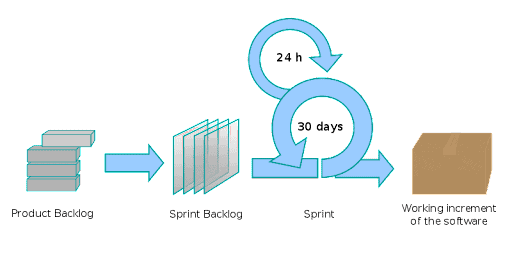
Earn AI product owner certifications
Certifications are a great way to communicate your knowledge to the market. Therefore, we recommend that AI product owners earn both a general Scrum product owner certification and a certification specific to AI and data science projects and products.
- Scrum product owner certification: Various Agile training organizations offer product owner certifications that help professionals understand the scrum product owner role. These trainings tend to cater toward product ownership in the software industry. Specific certifications include the Certified Scrum Product Owner through the Scrum Alliance, the Professional Scrum Product Owner through scrum.org, and the Registered Product Owner through Scrum, Inc.
- Data Science Team Lead Plus certification: The Data Science Process Alliance offers three levels of the Data Science Team Lead certification. These certifications help professionals develop their ability to lead AI and data science projects and teams. Each one covers the Scrum and Data Driven Scrum frameworks. The Plus certification also empowers product professionals to manage data science and AI products.
Consider related careers
Several other positions are like the AI product owner role. The responsibilities and expectations of these roles overlap significantly, and the distinction between them is blurry. However, generally:
- AI product manager: Relative to a product owner, a product manager tends to be more strategic. They generally focus more on the external-facing factors of the product (such as market research, commercialization, and operations) as opposed to the day-to-day development team.
- Data science product manager: Relative to an AI product manager, the data science product manager tends to be more responsible for leading teams that discover insights from data. Often this overlaps strongly with AI teams.
- Data science project manager: Relative to product roles, project managers are more tactical and focus on the execution and delivery of a project. They often work closely with product professionals to help teams develop a product and are less focused on commercialization and operations.
- AI strategy consultant: This is a broader field with professionals who provide strategic guidance to businesses on how to integrate AI products for maximum impact.
Apply to roles
AI product owner salaries in the USA start at around $100,000. Senior-level professionals can earn above $200,000. To find these opportunities, explore:
- Your current company: Currently employed professionals might be able to find internal opportunities within their current employer. However, with this being a niche profession, you might need to look for external roles.
- Large job boards: These include Indeed.com (general job aggregator), monster.com (general job aggregator), dice.com (specializes in tech), or anglistlist.com (focused on startups).
- LinkedIn.com: The main professional social media platform is increasingly becoming a dominant player for online job searches.
- Company career pages: These are ideal for targeting specific companies that you would like to work for.
- Networking events and conferences: Hiring managers are more interested in hiring people they know. Since COVID, many of these events are virtual.
- Recruitment firms: Companies such as Robert Half, Tek Systems, and Michael Page help professionals secure roles. The Data Science Process Alliance also occasionally posts positions from our clients.
- Google: It remains the most powerful search option. With some advanced search tactics, you might be able to more precisely hone your search. See Vijay Chandola’s LinkedIn post to learn how.
Is the AI product owner role right for you?
The rise of AI product owners signifies a shift in the product development landscape. This role demands individuals who are not only adept at traditional product management but also possess a deep understanding of AI technology. As AI continues to permeate many aspects of our lives, AI product owners have the potential to shape the future, one ingenious product at a time.
So, if you’re driven by innovation, passionate about technology, and committed to ethical development, consider stepping into the shoes of an AI product owner. This challenging yet rewarding path holds the key to unlocking the incredible potential of AI, transforming the way we design, build, and experience products in the years to come.
